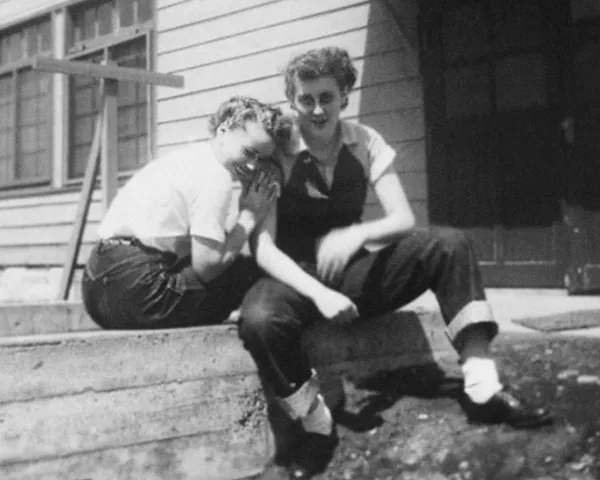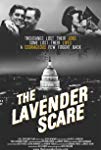Eye For Film >> Movies >> The Lavender Scare (2017) Film Review
The Lavender Scare
Reviewed by: Jennie Kermode

Two years ago we had the 50th anniversary of the (limited) legalisation of sex between men in the UK. This year we have the 50th anniversary of the Stonewall riots in the US. This means that there have been a lot of LGBT history documentaries around. Although most viewers will probably make their choice based more on subject than on quality, this is by far the best.
Early in the Cold War, when the Soviet Union developed the atomic bomb and Western experts were convinced that they must have had help, US security services became obsessed with rooting out spies. It soon became apparent, however, that there were only so many actual Communists to be found. Who else might be spilling secrets? The finger of suspicion fell on LGBT people (or gay men and lesbians, with bisexual and trans identities not really recognised as distinct at the time). wouldn't they, being 'moral deviants', be afraid of exposure? Wouldn't that make them vulnerable to blackmail? President Eisenhower demanded that any such people working for the government must be found and fired.

Despite the fact that exposure meaning the end of one's career immediately increased the need for gay and lesbian people to hide, thus raising, rather than diminishing, the blackmail risk, not a single instance of an LGBT government employee spying against the US was ever found. It didn't make a difference. In a climate of paranoia, workers rushed to turn in suspected colleagues. Those who were identified were blackmailed by their own country into revealing the names of others. The notion of deviancy was compounded by one of treachery. What had been a relatively unremarkable aspect of personal identity became politicised, associated with anti-American activity. Thousands of people lost their jobs, their careers, and it was subsequently very difficult for them to find work anywhere else. Security services cannibalised themselves, ridding themselves of many talented, useful and devoted personnel at a time when they were desperately needed, whilst the country's science programmes set work back by years by expelling skilled researchers.
What does persecution like this do to a society? Mixing archive footage, interview material and more, Josh Howard confronts that full horror of its immediate impact - the fear and humiliation that victims felt, the suicides, some people taking their own lives directly following interrogation without even going home first - but, importantly, he also looks at the wider effect. There's moving testimony from a woman who lost a beloved uncle, a man who had been living happily with his partner for years, explaining what it did to her family. Some of those directly involved in finding and interrogating suspects talk about how it came to seem normal to them to do what they did. Notions of legal representation and the right to a fair hearing were casually abandoned. Lesbian and gay people became afraid to support each other. Talented individuals reined in their ambitions for fear of attracting too much attention. Nobody's private life was off-limits.
For all this, the thing that hits hardest in Howard's film is his illustration of what came before. There's a pretence across much of the world that our societies were always homophobic and have only begun to think differently very recently. On the contrary, many simply didn't see same-sex relationships as a big deal. Despite numerous efforts to erase the evidence of this, some survives, and Howard has accessed an amazing collection of photographs showing happy same sex couples living as freely as anyone else in the early 20th Century US. The contrast between these and the climate of terror revealed elsewhere in the film is heartbreaking.
Going on to talk about the individuals who stood up to their persecutors and gradually brought Eisenhower's approach to an end, the film is on more familiar territory but still excels, assembling an impressive amount of to-the-point eyewitness testimony. Speaking the words of those who had died when the film was made, actors like Cynthia Nixon and Zachary Quinto add a further layer of meaning through their presence as people continuing the struggle for equality in the present day. The Lavender Scare is released in the US in the same week that an Alabama mayor publicly called for LGBT people to be killed, the week that the US government began allowing hospitals to refuse to help trans people, and just days after that same government argued in court that LGBT people should not be understood to be covered by laws preventing discrimination in employment. Some of the history in Howard's film had been recorded on that government's own website. Now there is no trace of it. The film could not be more timely.
Thoroughly researched and evidenced, wonderfully detailed, informative and authoritative but always in touch with the human story at its heart, this is a film that presents viewers with the opportunity to learn from that which they may otherwise be doomed to repeat.
Reviewed on: 06 Jun 2019















